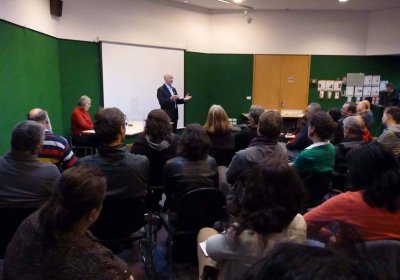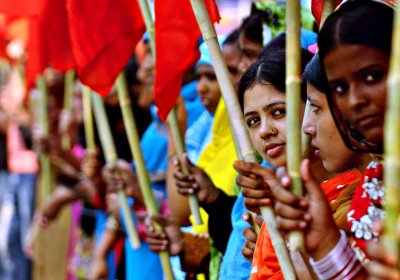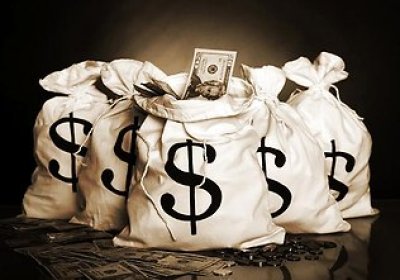“Australia is at a crossroads,” said Liam Flenady, Socialist Alliance candidate for Griffith on July 5.
“One path leads to more austerity, more oppression of minorities, more environmental destruction; the other leads to a just, equal and sustainable society. There is no middle path.
“We require a fundamental change to our economic and political system to build the future we need.”
Flenady has pledged to put a different kind of politics on the agenda in Griffith in the upcoming federal election, one that puts the needs of the 99% in front of the greed of the wealthy 1%.
Australia
Former US marine and anti-war activist Vincent Emanuele is making his second speaking tour of Australia during June and July. A member of Iraq Veterans Against the War, Emanuele is speaking to audiences about the US military machine.
At a meeting in Melbourne where Emanuele spoke on July 4, the film On the Bridge was also screened. The film is a series of interviews with Iraq war veterans opposed to the war, including Emanuele.
After fleeing and risking everything to seek asylum under Australia's laws, Iranian refugees now face being singled out and persecuted once again. This time, by the Australian Labor government.
New Prime Minister Kevin Rudd labelled “a whole bunch of people” as “economic migrants” who “comport as refugees”. Foreign affairs minister Bob Carr said boat arrivals are “increasingly not people fleeing persecution” because they are from “majority religious and ethnic groups”.
Protestors called for more privacy protection at rallies held around Australia on July 6 in response to the revelations that US’s National Security Agency (NSA) has been spying on the communications of most internet users.
Sydney rally organiser Matt Watt from the Support Assange and WikiLeaks Coalition said: “We demand freedom for Edward Snowden, a courageous whistleblower who revealed the wrongdoings by the NSA.
Only a month after Western Australian Premier Colin Barnett announced the government would push for the acquisition of James Price Point for future gas and petroleum projects, Shell Petroleum defended their proposal to build a $12 billion floating liquefied natural gas (LNG) plant off the Kimberley coast.
This follows Woodside Petroleum’s decision to abort plans to build a $40 billion onshore gas hub after concluding that it was not economically viable. Instead it will use Shell’s technology to develop its own offshore floating LNG plant.
Shock facts on Aboriginal people and Australian prisons:
* The proportion of Indigenous prisoners has almost doubled in the 20 years since the Royal Commission.
* In 2011, Aboriginal people made up 2.5% of the Australian population. They accounted for 46.2% of all youth in juvenile custody and 26.1% of total adult prison population.
* In the NT, Aboriginal people made up 30.3% of the total population, 96.9% of the juvenile detention population and 82.3 % of the adult prison population.
About 90 people gathered in the Coburg library on June 6 to oppose the Moreland Council’s plans for a mini-CBD in the central Coburg shopping centre.
The meeting was organised by the Save Coburg Residents Network which formed in January to oppose the council’s C123 planning amendment. Most residents only discovered the plans a couple of weeks before the deadline for public submissions.
The plan includes a row of 10-storey buildings along both sides of Bell St on the western entrance to the shopping centre and 10-storey buildings along one side of Sydney Road to the north.
The eight-storey Rana Plaza collapsed in Dhaka, Bangladesh, during working hours on April 24. The official death toll stands at 1129. However, workers’ rights groups believe the number could be higher. Another 2000 workers were injured in the collapse, many losing limbs.
Australia's four biggest banks — the Commonwealth Bank, ANZ, NAB and Westpac — dubbed the "banksters", were condemned for crimes against people and the environment during a protest in Melbourne on June 29.
Protesters marched to each bank, cordoned of the entrance to create a symbolic crime scene and read out a charge sheet.
The action was called by the Socialist Alliance. Margarita Windisch, the Socialist Alliance candidate for the seat of Wills, argued the big banks, mines and energy companies should be nationalised and put under community control.
About 100 people attended a public meeting jointly organised by Socialist Alliance and Socialist Alternative in Sydney on June 25.
The meeting discussed how a united left would be in a stronger position to campaign against a conservative Coalition government. Speakers from both organisations, Pip Hinman and Diane Fields, raised ideas about how a possible united socialist party could organise.
Whatever their views on the relative merits (if any) of Julia Gillard and Kevin Rudd, there were many people inside and outside the Labor party who breathed a sigh of relief when Rudd replaced Gillard as Labor leader and prime minister.
The reason was simple. It offered the hope that Tony Abbott and his Liberal National Coalition would not have the landslide victory in the next election predicted by all opinion polls for many months. It offered the hope that even if Abbott won, perhaps he would not capture both houses of parliament.
As the global financial crisis unfolded in October 2008, part of the Australian government’s response was to provide unlimited guarantees of bank deposits and wholesale funding. One result was that the big four banks got bigger while little was said of the $13.8 trillion in off-balance-sheet derivatives to which they were exposed.
Derivatives operate in a global over-the-counter (OTC) market that is almost totally unregulated.
- Previous page
- Page 650
- Next page











